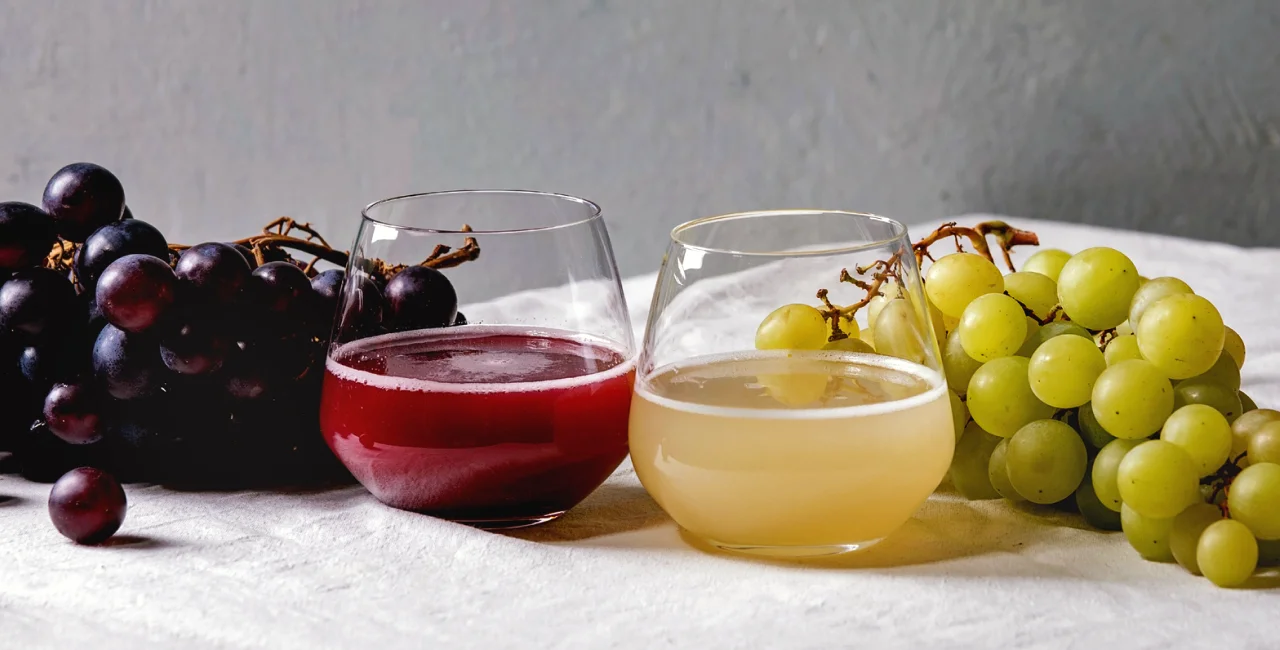Burčák won’t be available until about two weeks later than usual. The weather has slowed down the ripening of the grape vines in the south of Moravia, and the first burčak of the year will be ready for tasting in the week after next.
Burčák is a slightly fermented grape must. It becomes available shortly after the grape harvest, which varies each year based on the weather during the growing season. According to Czech law, burčák cannot be sold earlier than Aug. 1 or later than Nov. 1. As the beverage is still fermenting, it can’t be stored in sealed glass bottles like wine. It is usually sold from stands in farmers markets by the glass or in plastic bottles with caps that can be loosened to let the gas out.
Vintners in Moravia haven't started the harvest yet. The delay is attributed to a combination of the cooler spring weather, causing the vines to bloom late, and the recent rainy and cold week, which is not conducive to grape ripening.
Pavel Pavloušek from the Institute of Viticulture and Viticulture at the Mendel University Faculty of Horticulture told ČTK that the hot July also played a significant role. "Ripening slows down once daytime temperatures exceed 35 degrees Celsius, especially when warm temperatures persist even at night," he explained.
The earliest harvesting could start this week
The delay is confirmed by David Šťastný from the winery Chateau Valtice (Vinné sklepy Valtice). They cultivate a rare grape variety called Augustovskij in one area of their vineyards in the Břeclav district. This grape typically ripens earlier than others. Last year, the grapes were already ripe at the beginning of August.
With higher temperatures and more sunshine expected by the end of this week, if the weather improves, they can begin harvesting the first grapes on Aug. 15 or 16. "We could have fresh burčak at our wine stand in Valtice on the weekend of Aug. 19–20," he noted. On the other hand, vintners were fortunate to avoid both spring frosts and hail, making the harvest look very promising.
To be called Burčák, the beverage must be made only from grapes harvested and processed in the Czech Republic during the same year it is sold. It cannot be diluted or have added colors to mask poor quality. Information on the location of origin and producer has to be posted by the vendor. Fermented must from other countries can be sold, but only under a different name.
Traditionally, burčák flows at wine festivals taking place throughout the country in September. In Prague, the first of these festivals will be held at náměstí Jiřího z Poděbrad on Sep. 8–9, and at the Royal Gardens of Prague Castle on Sep. 9–10. One of the largest festivals will be hosted at Grébovka on Sep. 22–23.












 Reading time: 2 minutes
Reading time: 2 minutes 


























